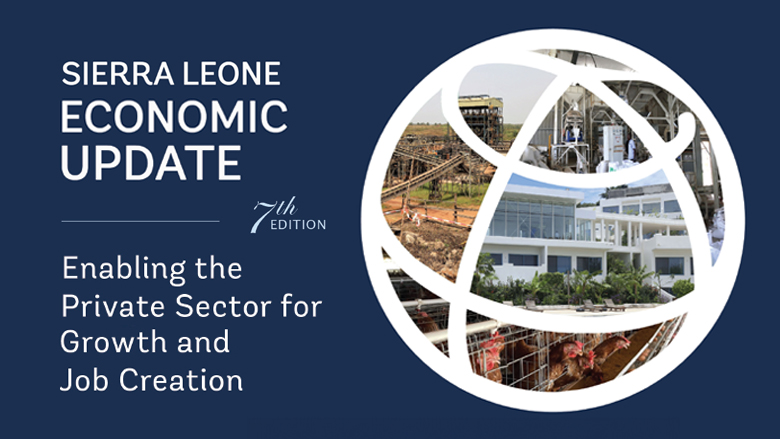FREETOWN, November 6, 2025 – Sierra Leone’s economy is showing signs of stability in the face of heightened global challenges, with growth projected at 4.3 percent in 2025 and reaching 4.6 percent by 2027, according to the latest World Bank Sierra Leone Economic Update (SLEU) launched today in Freetown. This outlook is supported by expected improvements in agricultural productivity, expansion in the mining sector, and steady performance in services.
The report, “Enabling the Private Sector for Growth and Job Creation,” highlights the key constraints faced by the private sector and the critical role of private sector development in sustaining economic progress and generating jobs for Sierra Leone’s growing population.
“Unlocking the potential of the private sector remains critical to diversifying Sierra Leone’s economy and creating more meaningful jobs,” said Abdu Muwonge, World Bank Group Country Manager for Sierra Leone. “Sustaining the current reform trajectory to restore macroeconomic stability, improving the investment climate, and strengthening social spending will foster inclusive growth and development. The World Bank remains committed to supporting Sierra Leone’s journey toward inclusive and sustainable growth.”
Sierra Leone faces an enormous challenge in generating sufficient jobs for its expanding workforce with the country required to create at least 75,000 new jobs annually to maintain the current employment-to-population ratio, the report notes. Growth and employment opportunities are constrained by a lack of vibrant private sector activity, limited access to finance, land, electricity, and skills.
Revitalizing Sierra Leone’s private sector is essential for unlocking the country’s growth potential and creating more jobs,” said Subika Farazi, World Bank Senior Economist and co-author of the report. “As highlighted in the new World Bank Group flagship report, B-READY 2024, there is room to improve and strengthen Sierra Leone’s regulatory environment and service delivery. By doing so, the country can foster a more dynamic, resilient, and competitive business climate that empowers entrepreneurs and attracts investment.
Key policy recommendations from the report include:
- Strengthening fiscal management through revenue enhancement, improved expenditure controls, and stronger tax administration to reduce reliance on costly domestic debt and restore fiscal credibility.
- Boosting private sector competitiveness by simplifying regulations for business entry, operation, and exit, encouraging market competition, and reducing trade barriers.
- Improving access to finance by expanding credit reporting, modernizing collateral registration, and enhancing transparency to unlock inclusive finance and strengthening the private sector.
- Enhancing infrastructure by investing in reliable energy, transportation, and digital networks to reduce operational inefficiencies for firms.
- Streamlining foreign direct investment regulations and investment protection frameworks, and reforming restrictions in key industries to attract needed capital.
“Unlocking Sierra Leone’s private sector potential to create jobs and drive development should be prioritized,” said Michael Saffa, World Bank Senior Country Economist and lead author of the report. “Sierra Leone’s prospects for growth and poverty reduction depend on strengthening fiscal discipline, improving the business environment, and fostering private sector-led job creation. Without decisive reforms, the country risks falling short of its development objectives.”
